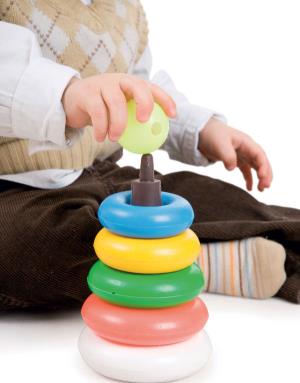
Every time you open a magazine or parenting website one is struck by the number of articles on how to make your child smart.
Why this obsession? Because intellectual abilities, such as a good knowledge base, language skills, being able to make decisions, problem solving, recall a sequence of steps and paying attention, provide the keys to open many doors in life – scholastic and financial success being the most obvious benefactors.
What is Down's syndrome?
Down’s syndrome is the most common genetic cause of mild to moderate intellectual impairment. It is a chromosomal disorder where, at conception, chromosome 21 splits into 3 parts instead of 2. This leads to physical and intellectual delays in development.
Parents of children with Down’s syndrome and experts who work with these children have tried and tested ways of playing to boost intellectual development. Before learning from them it’s important to help your child better recognise and appreciate peers or a sibling with Down’s syndrome. Here’s how you can explain.
How to explain Down's syndrome to a child
Down’s syndrome is a condition, not an illness
Children with Down’s syndrome are not sick. A child with Down’s syndrome will always have specific physical features that won’t change or go away as he grows older; just as you were born with with an eye colour that stays the same throughout your life.
Distinct appearance
Just like you, he looks like his parents. But a lot of children with Down’s syndrome have a special look. Often the top of his nose is flatter, his ears are smaller and he has creases on the inner fold of his eyelids. His eyes slant upwards. You may notice that his mouth is often open and his tongue pokes out.
This is because the space inside his mouth is smaller than yours and the back of his tongue is bigger. His tongue muscles are a little floppy and make the movements of his tongue a big effort.
Most children with Down’s syndrome are shorter than children their age.
Slower learner
He takes a bit longer than you might to learn things, like how to ride a bike or to remember his home telephone number. He will get there, so you just need to be understanding and patient like your parents are when you are learning something new.
Affectionate
A lot of children with Down’s syndrome have difficulties with speaking because of the way their tongues are formed. Some are great speakers. All the same, most love to show you their love rather than tell you by a big, long hug. You can reward their friendly and caring ways by enjoying their hug and giving them one right back
Feelings
When someone finds it difficult to speak or learn something new it doesn’t make their feelings any different from yours. Treat your friend with Down’s syndrome the same way you would every other friend. Be kind, understanding and helpful.
More alike than different
He has talents and gifts just like you. His body may tire easily and he may need a little extra time to respond. However, he may be particularly good, for example, at caring for people.
Did you know
Down's syndrome is thought to be around 1 in every 650 live births in developing countries. Although the risk is higher in women over 35 years, more than 80% of Down's syndrome children are born to women under 35.




 Publications
Publications
 Partners
Partners










